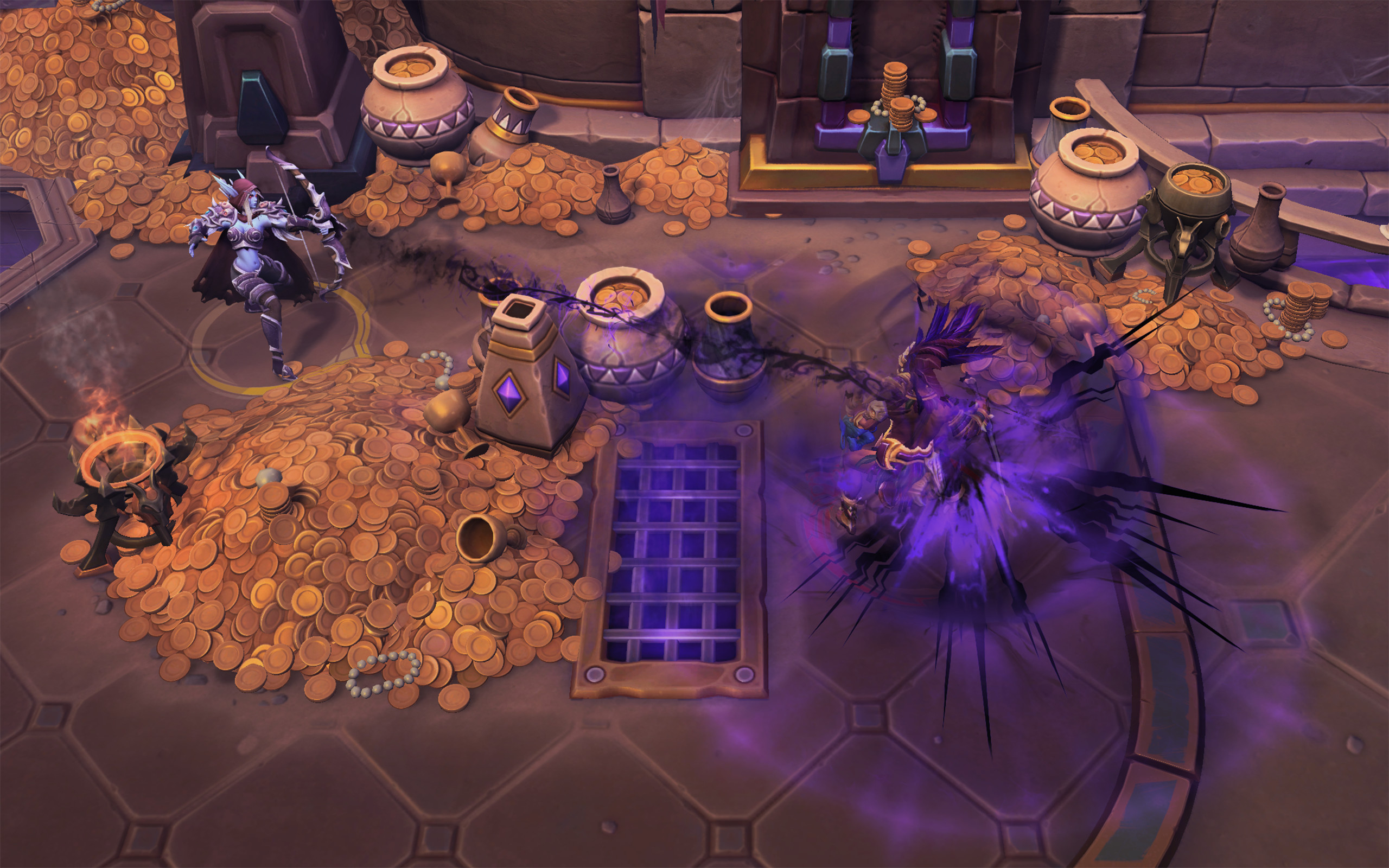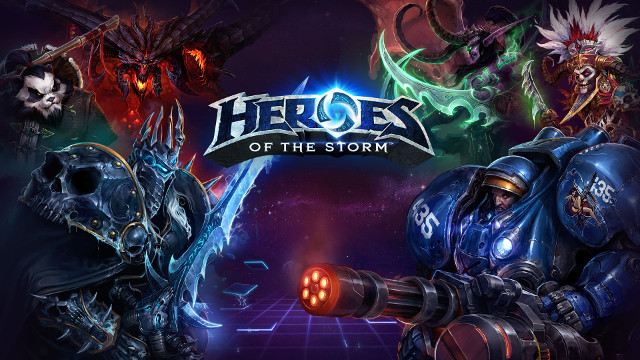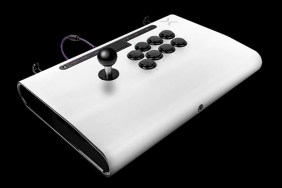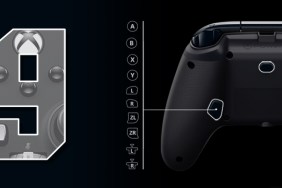Hero of the MOBA.
A few years ago Blizzard teased a custom map for StarCraft 2: Wings of Liberty titled Blizzard DOTA. It only seemed natural that the creator of Warcraft 3, the game that indirectly introduced the action RTS/MOBA genre into the world with the original DoTA custom map, would make a game of its own. More than a year into development the full potential of this game was understood, and Blizzard immediately began working on a full release independent of StarCraft 2. This game would be titled Heroes of the Storm.
It's been roughly five years since Heroes of the Storm was first conceived, and it's come a long way since then. Blizzard made very clear early on that it wanted to challenge norms of the genre, something many thought would be impossible. After spending more than 200 hours in Alpha and Closed beta, reaching level cap in the process, I can say firsthand that Blizzard has succeeded in its bold mission.
On the surface Heroes of the Storm resembles many of the action RTS games on the market with its top-down view, five versus five structure, and list of playable characters. Its gameplay is similar, allowing you to control a character's movement with mouse clicks, and use abilities with keyboard input. Skills offer great feedback, both visually and acoustically. You'll always know when your abilities land, and it's addictive to become better at the game if only to experience precise ability usage more often. Occasional stutter that is derived from the game's network architecture can occasionally be a nuisance but is merely a blemish on the outstanding gameplay.
Heroes of the Storm's hero list is both its greatest strength and weakness at launch. On one hand, its roster of characters have rich history. You can play as a number of characters from Blizzard's prolific portfolio, ranging from Thrall (Warcraft) to Kerrigan (StarCraft) and Tyrael (Diablo). Blizzard doesn't stop at iconic heroes, which is a nice touch. You can find Brightwing, derived from a basic enemy in World of Warcraft, and even The Lost Vikings, a group of three heroes cast from Blizzard's second game ever developed (under the name Silicon & Synapse). On the other hand, at launch Heroes of the Storm's quantity of heroes sits at 37, remarkably lower than competing games. This causes some level of repetition and lack of diversity, especially in league play. With a plan to introduce one new character every three weeks, with time this should no longer be a concern.
What Heroes of the Storm lacks in hero quantity, it makes up for in quality. Heroes are meticulously crafted, both in terms of visual and gameplay design. Heroes are true to their spirit with recognizable abilities whether or not you've used them before. Take for example Warcraft's Jaina Proudmoore. In Heroes of the Storm she looks and acts the part, equipped with abilities that frost mage players will identify, such as Frostbolt, Blizzard, and Cone of Cold. Or maybe you prefer Diablo, the Lord of Terror. You've probably been on the receiving end of his Shadow Charge, Fire Stomp, and Lightning Breath in Diablo 3. Well, you can play as him here, as well as dozens of other fantastic characters.
The game's progression system is the best in the business. You'll find yourself constantly rewarded for playing the game's fun-to-use heroes. Both your profile and hero levels grow as you play, and you'll find yourself showered with skin colorways, mount variations, in-game currency, and much more. The game's daily quest system helps in encouraging you to play different heroes in an effort to obtain their sizeable gold reward. The road to the level cap of 40 and beyond is a consistently thrilling one.
Since Heroes of the Storm is free, Blizzard has put a price tag on each of its heroes as well as vanity items such as optional skins and mounts. Gold is acquired at a moderate pace due to daily quests being generous, but if you want to have a large selection of heroes, then you'll need to invest real-life money. Unfortunately, the pricing of heroes and their skins is unkindly high, in many cases double what you'd expect to pay when compared to similar games on the market. It's likely the pricing was due to the limited roster, and the combination of these two mild concerns can hold back the experience at times.
Blizzard has strayed from the norm of action RTS by going with an objective-focused style that nearly eliminates the genre's staple laning phase. Long gone are the days of running League of Legends' Summoner's Rift to exhaustion. In its present state, Heroes of the Storm has seven maps, which it calls "battlegrounds," and unsurprisingly they are akin to World of Warcraft's PvP maps. These vary from two- to three-lane configurations with objectives to be fought over. The objectives usually lead to team fights, and the team who wins gets a powerful surge of offense allowing them to pressure the enemy team's base.
It's common to find a favorite map or perform particularly well on one or another. The varied map design also helps different heroes highlight their strengths. Take for example Gazlowe, a hero with one of the best defensive toolkits in the game. Many consider him situational, and when playing on Dragon Shire he's able to defend a capture point by himself, allowing teammates to focus on the two other lanes.
Heroes of the Storm is a very team-oriented game. In fact, it's a game that values teamwork much more than individual skill. This audacious design plays to the strength of Heroes of the Storm. An unskilled player on a team may compromise the group's competitiveness, but at the very least if the team works cohesively, then it has a chance to win even if the other team is populated by high-caliber members. XP gains for player kills are minimal and all XP is shared among the team, significantly muffling the effects of "feeding." Star players have to work with the team to succeed as carrying is nearly impossible without some level of support. For lone wolf-style players this may be off-putting. For those who enjoy working together with a group it's a revolution in the genre.
Due to Heroes of the Storm's teamwork-based nature, group composition is of utmost importance. So, it can be infuriating to play Quick Match and find yourself consistently in groups that are missing key roles such as the Warrior or Support, an issue that partially stems from the game's choice to allow you to queue as any hero. Matchmaking doesn't appear to care much about roles, and is instead more worried about pairing equally-sized groups together. In other words, if you queue with a group of three people, matchmaking will do its best to match you against a team that contains a group of three, a nice touch for those who dislike being stomped by organized teams. However, the algorithm's lack of consideration for roles can lead to a lot of frustration. You are going to want to make some friends and queue with two or more roles filled for the sake of your win ratio.
What drives home the experience is its respect for your time. Just minutes into each match you'll find yourself traversing to other lanes to support comrades and fighting over objectives in the jungle. Team fights occur throughout the game, and this is what separates Heroes of the Storm from other games on the market. Thanks to the mount system and talents, heroes are mobile and able to focus on action instead of remaining in a lane and occasionally leaving to buy items. The result is that matches are usually anywhere between 20 to 35 minutes in length. When you queue up for a game you'll do so knowing that you will immediately be able to enjoy competitive gameplay and finish before the sun goes down.
Heroes of the Storm has a remarkable presentation. Heroes are true to their original design, and in some cases look better than ever before thanks to the game's high-polygon character models. All seven maps evoke a feeling of liveliness, with great detail and animations on environmental objects, structures, and more. While menu and in-game UI elements are clean and nice on the eyes, the main menu can be difficult to navigate, especially the hero list.
Equipped with team-chat only, a mute option, and a robust ping system, Heroes of the Storm makes an effort to dissuade toxic interactions while allowing for teammates to communicate without voice. The social side of the experience is one of the best in the genre. With Battle.net integrated, you can easily group with friends, message them while in-game, and view profile information. There is no clan system in its current iteration, but there is a Team League mode where you can compete in ranked play. There's a Hero League option for those who don't want to commit to a team.
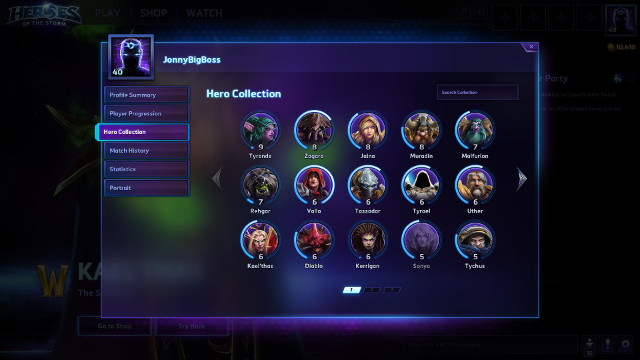
Heroes of the Storm is the most recommendable action RTS on the market for the average player who wants to hop into a visually vibrant game and have a good time. Its ability to be a popular eSport title hinges on Blizzard's ability to introduce new heroes at a quick pace and provide consistent balance. On the balance side of things, every build during Alpha and Beta and now launch has had heroes that are remarkably more powerful than others, and several that have low win rates. This may be addressed better as time goes on, but for now the game is best enjoyed in a casual fashion.
Heroes of the Storm has taken huge risk by being an action RTS with an emphasis on team-play and early action, but it's all paid off. It has demonstrated that astutely straying from norms is how you revolutionize a genre. For fans of Blizzard's IPs, it's a game that holds tremendous value despite its free-to-play nature. For others, it's an exceptional multiplayer game that merits consideration.
-
Palpable feedback of skills
-
Heroes with rich history
-
Pretty graphics and UI
-
Rewarding progression
-
Solid battleground design
-
Team-oriented play offers unique style
-
Battle.net integration
-
Mount and talent design prioritize fun gameplay
-
Toxicity is addressed
-
Welcoming to new players
-
Modest hero quantity at launch
-
Expensive store items
-
Role-negligent matchmaking
-
Balance issues may stunt eSport growth
-
Hiccups due to network architecture
Heroes of the Storm Review
-
Heroes of the Storm Review #1
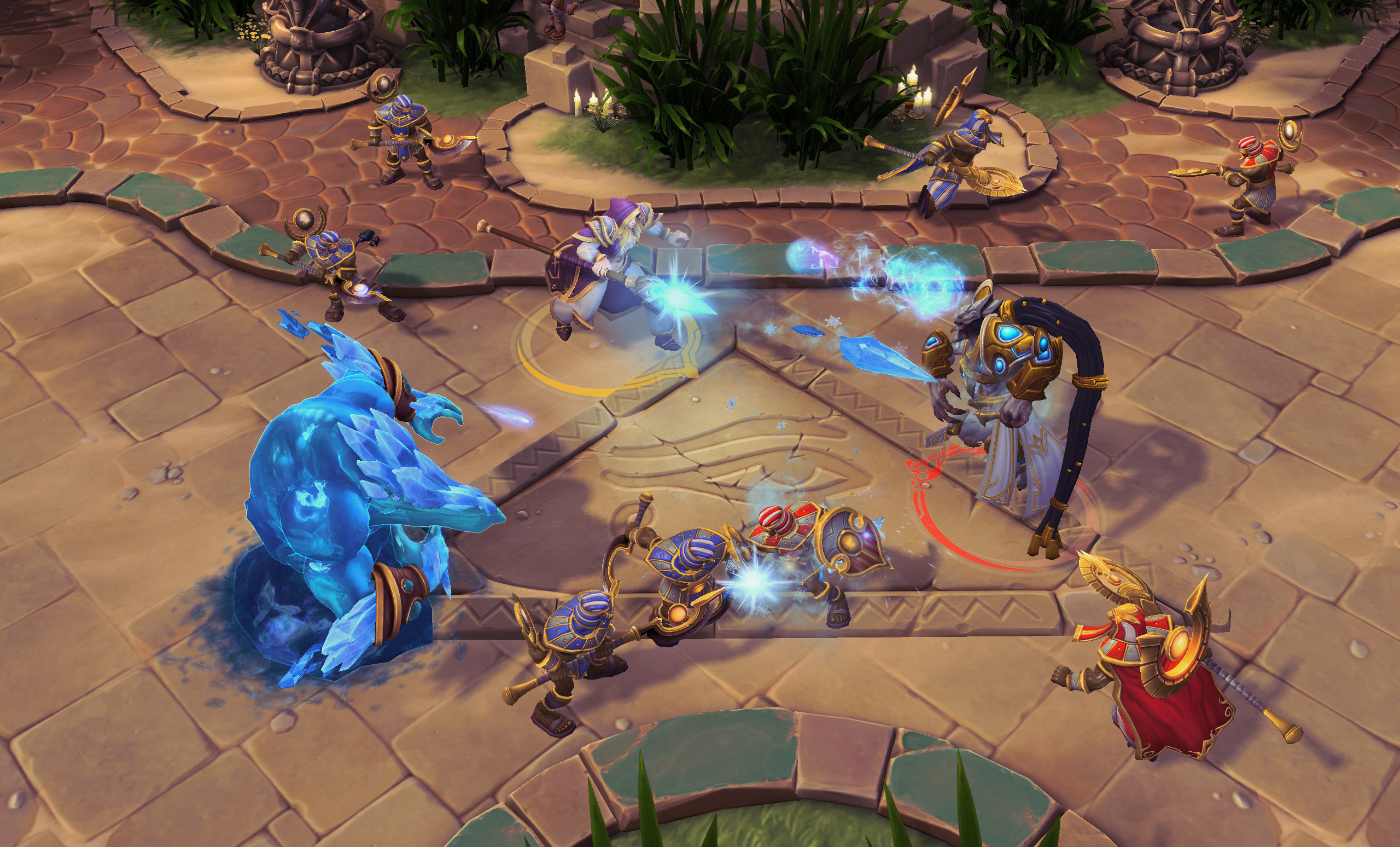
-
Heroes of the Storm Review #2
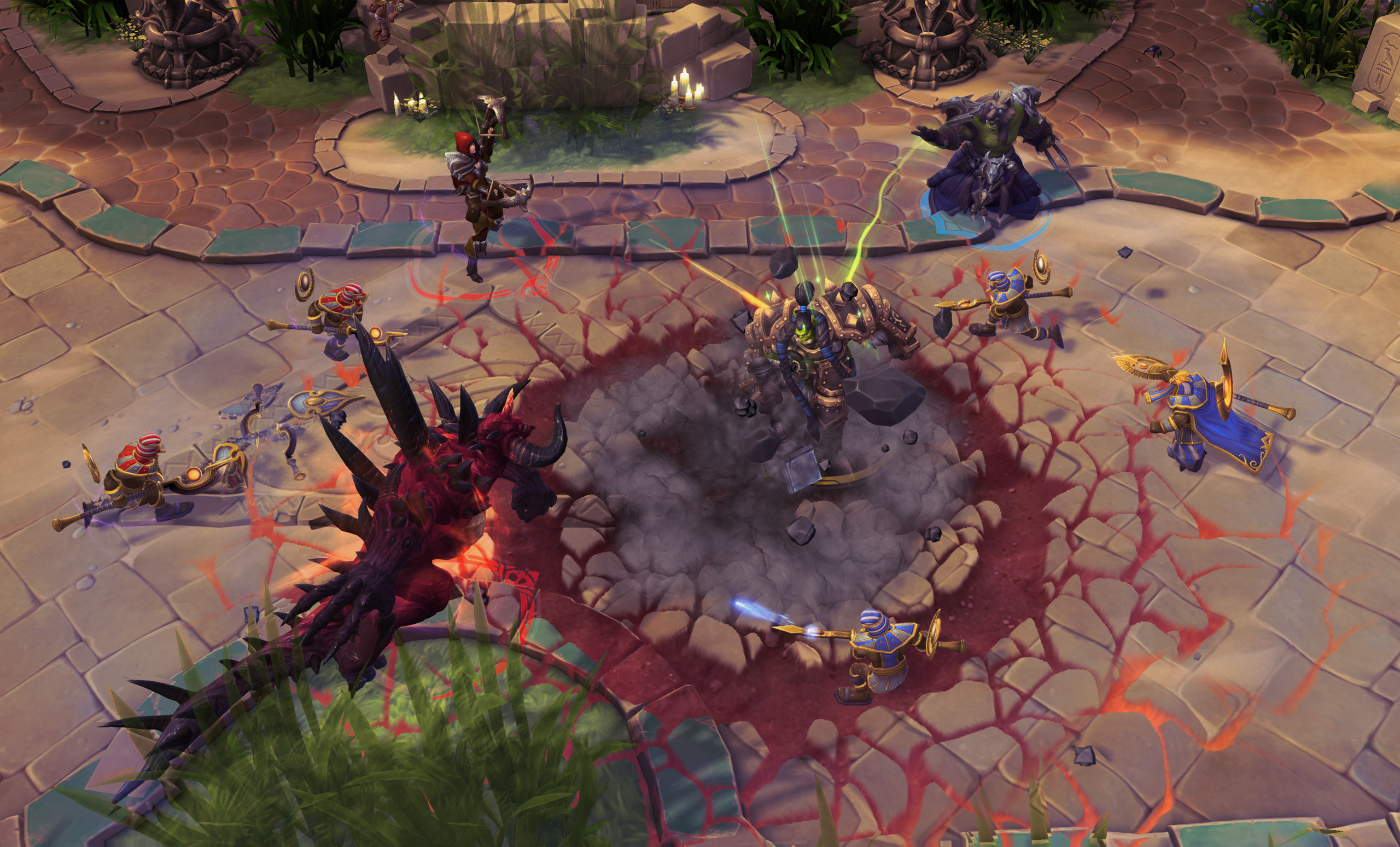
-
Heroes of the Storm Review #3
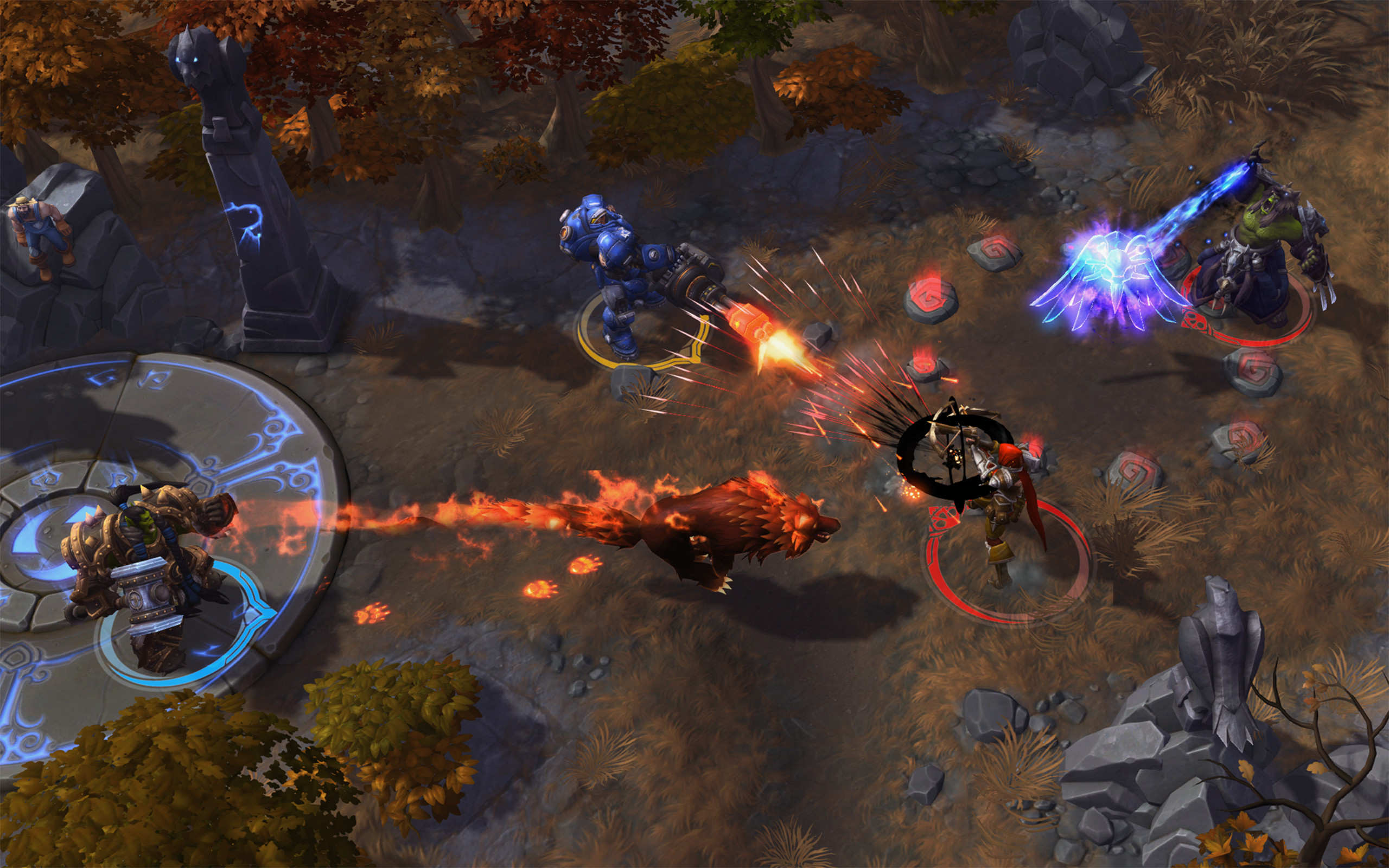
-
Heroes of the Storm Review #4
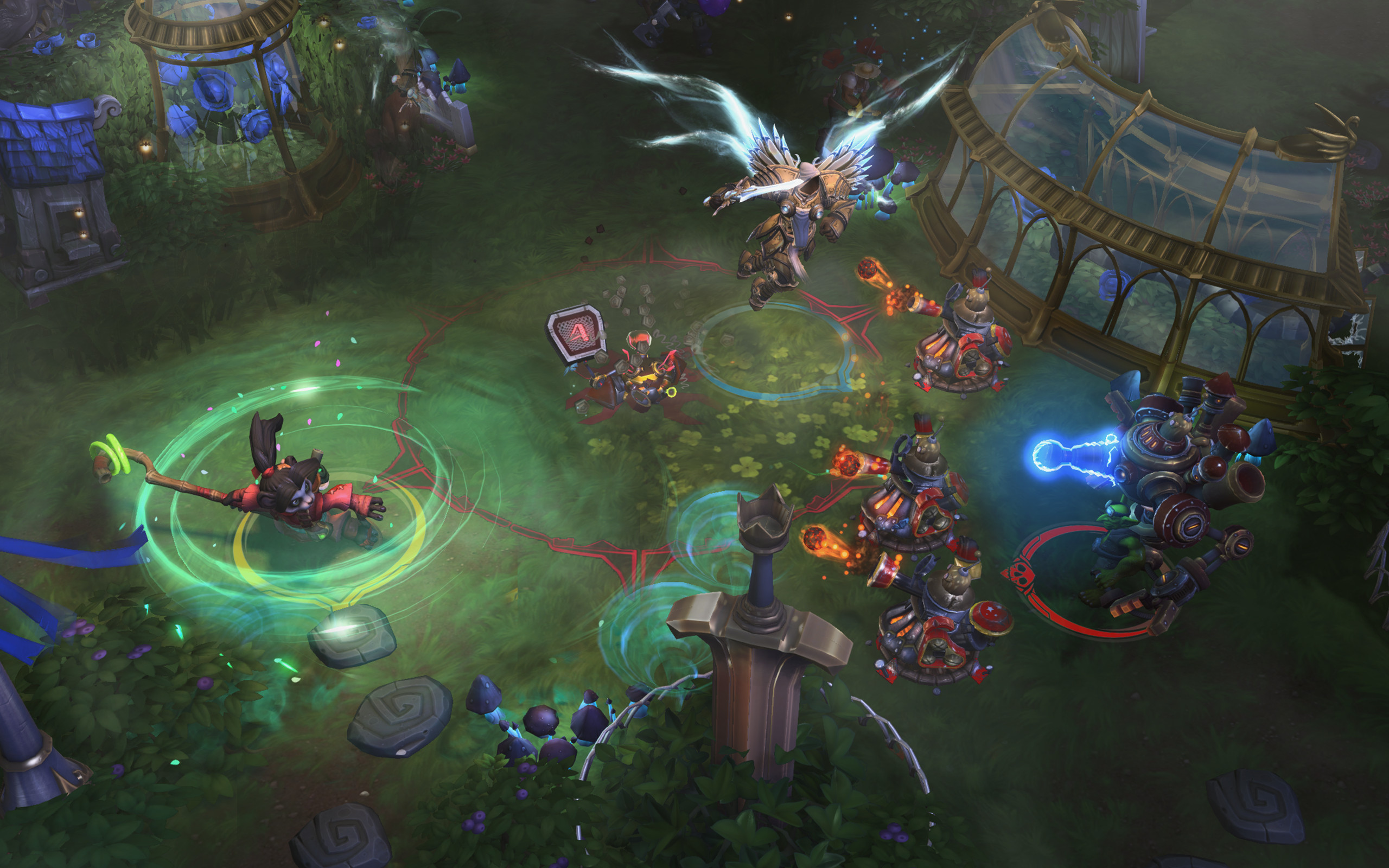
-
Heroes of the Storm Review #5
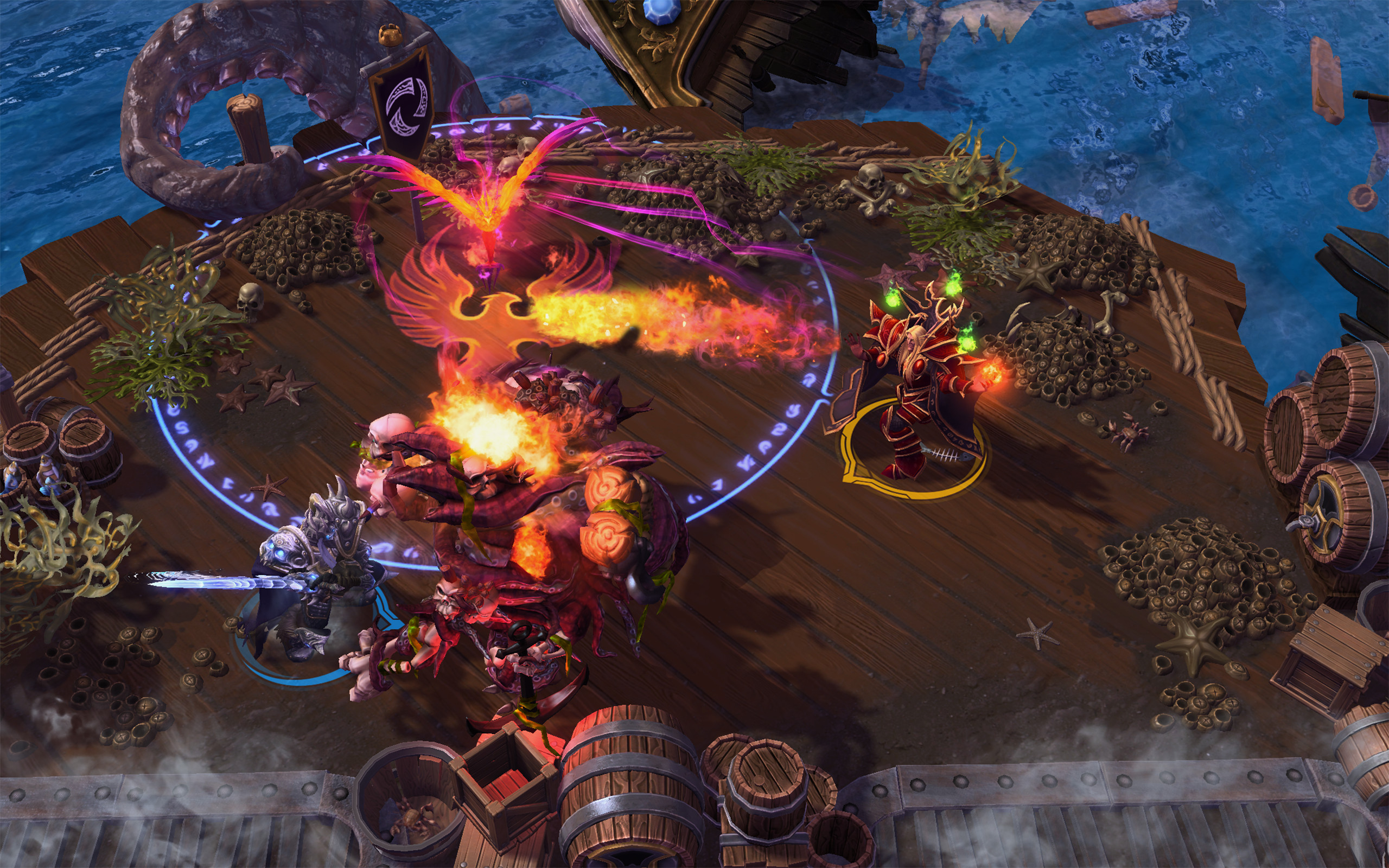
-
Heroes of the Storm Review #6
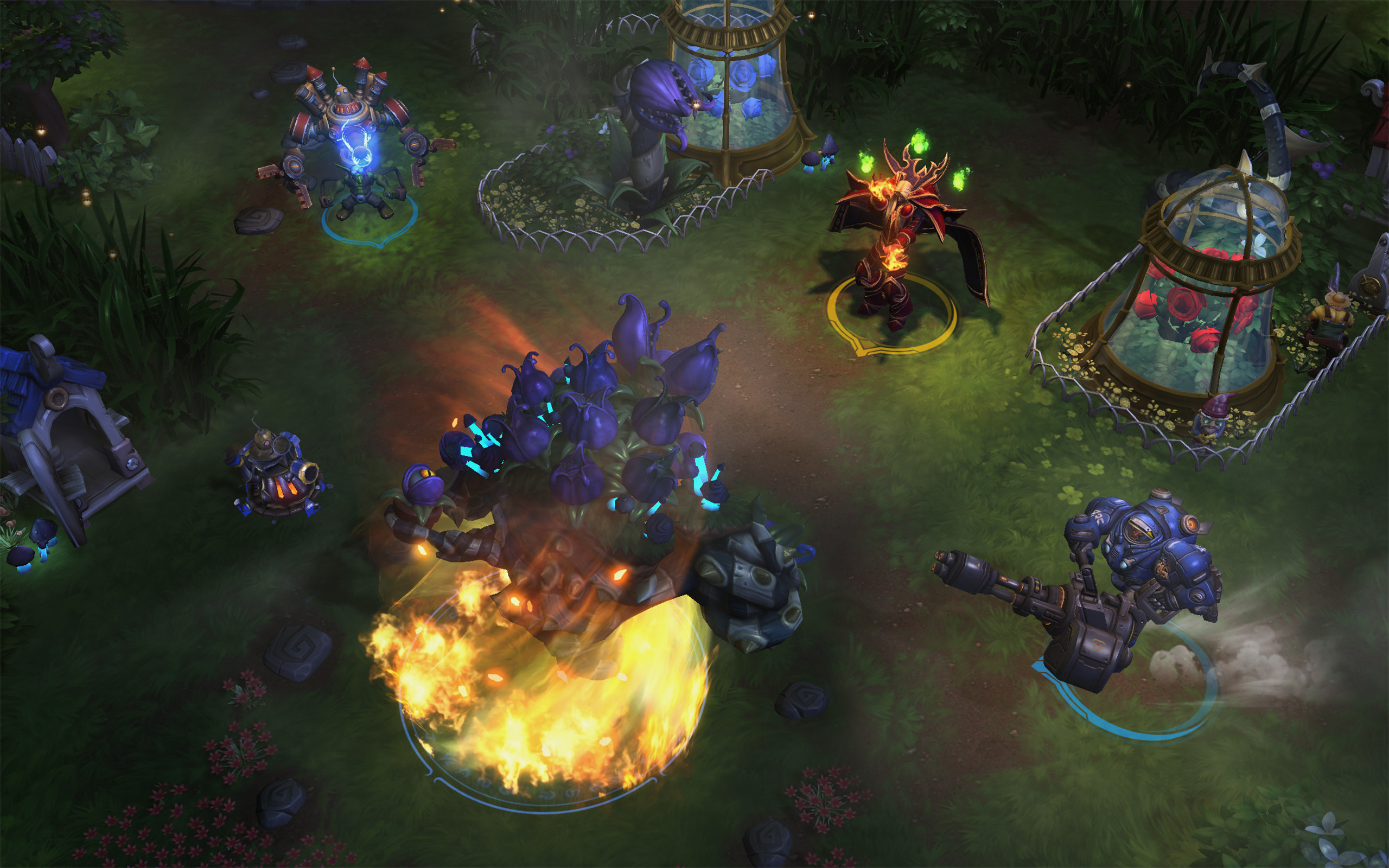
-
Heroes of the Storm Review #7
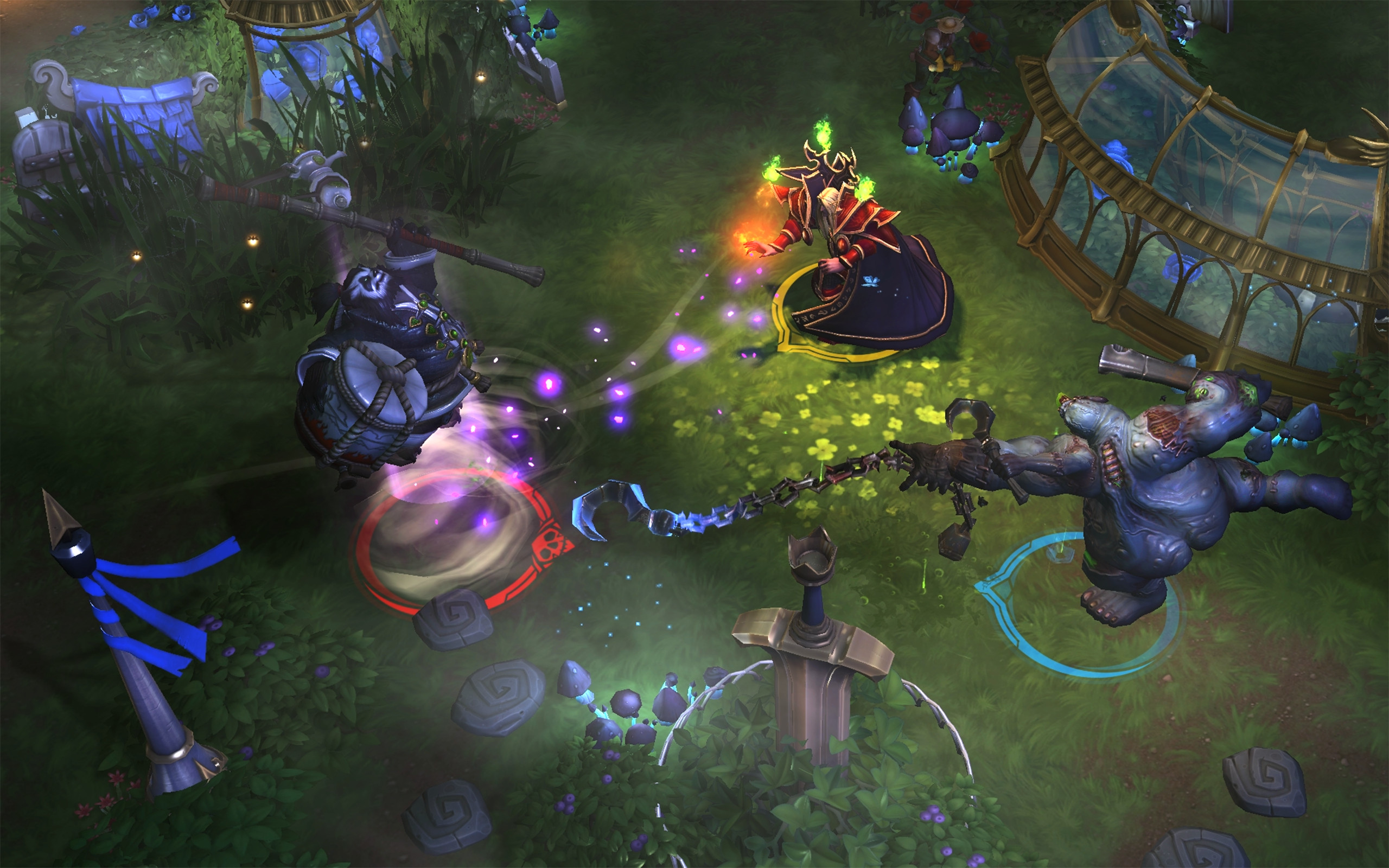
-
Heroes of the Storm Review #8
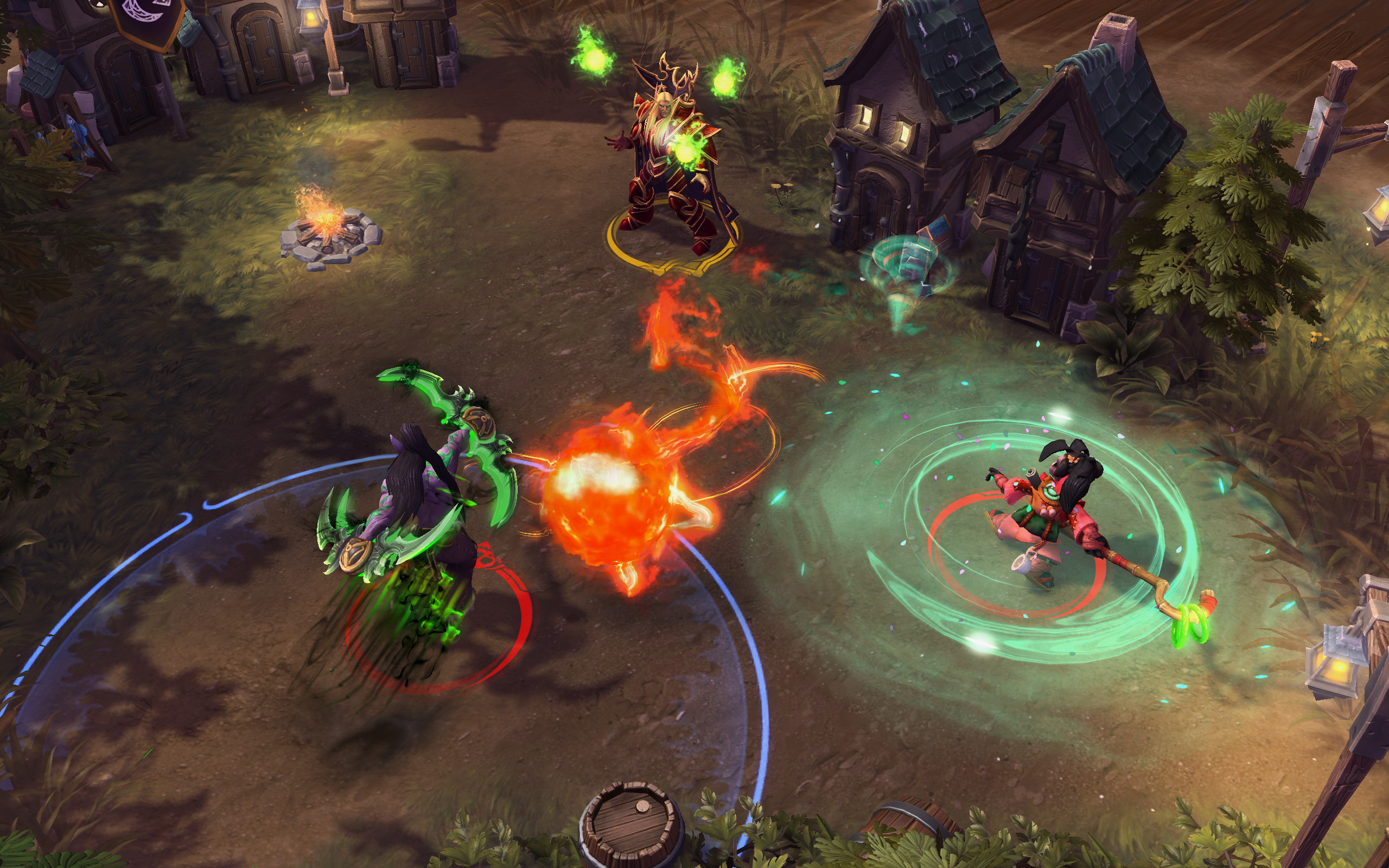
-
Heroes of the Storm Review #9
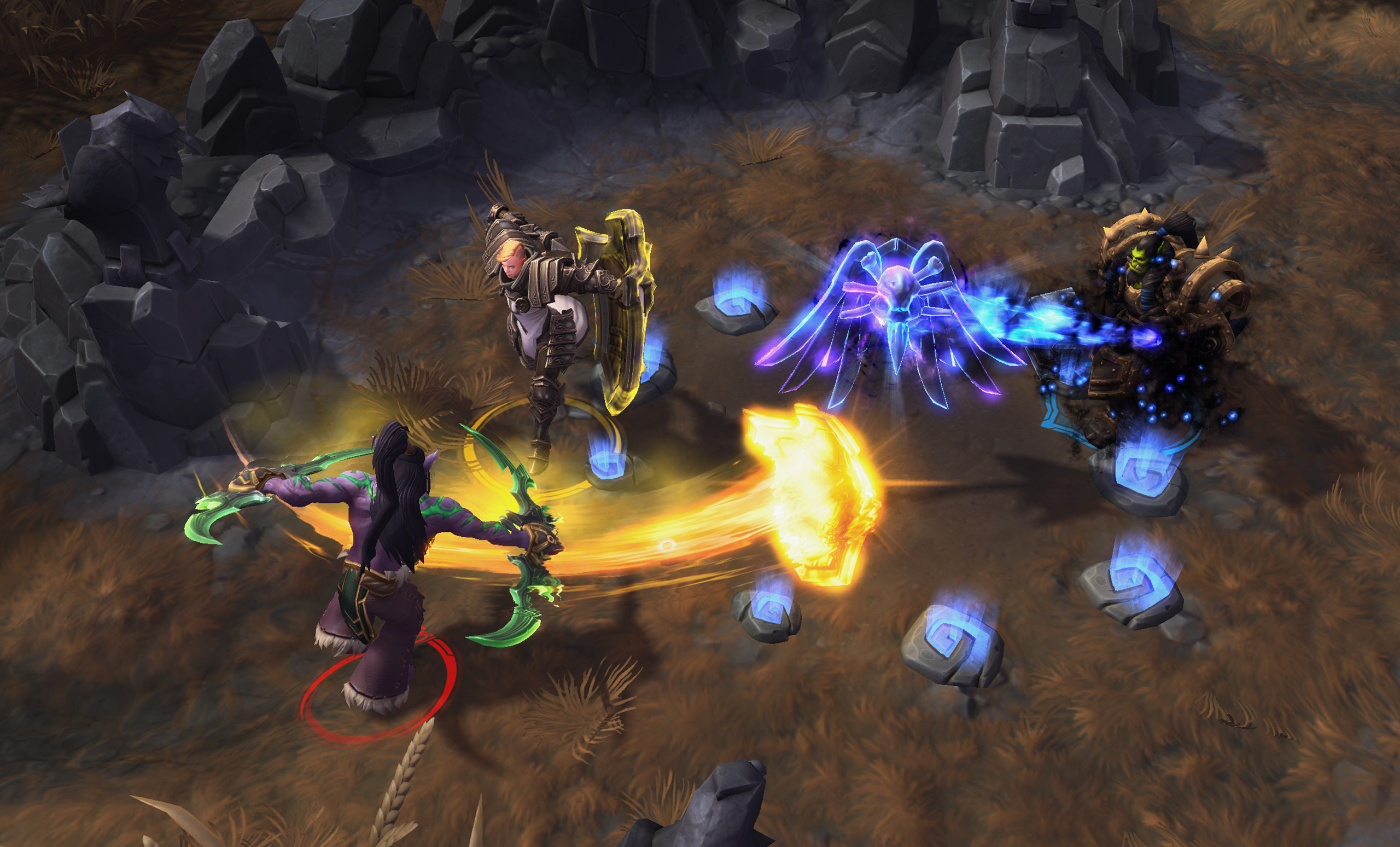
-
Heroes of the Storm Review #10

-
Heroes of the Storm Review #11
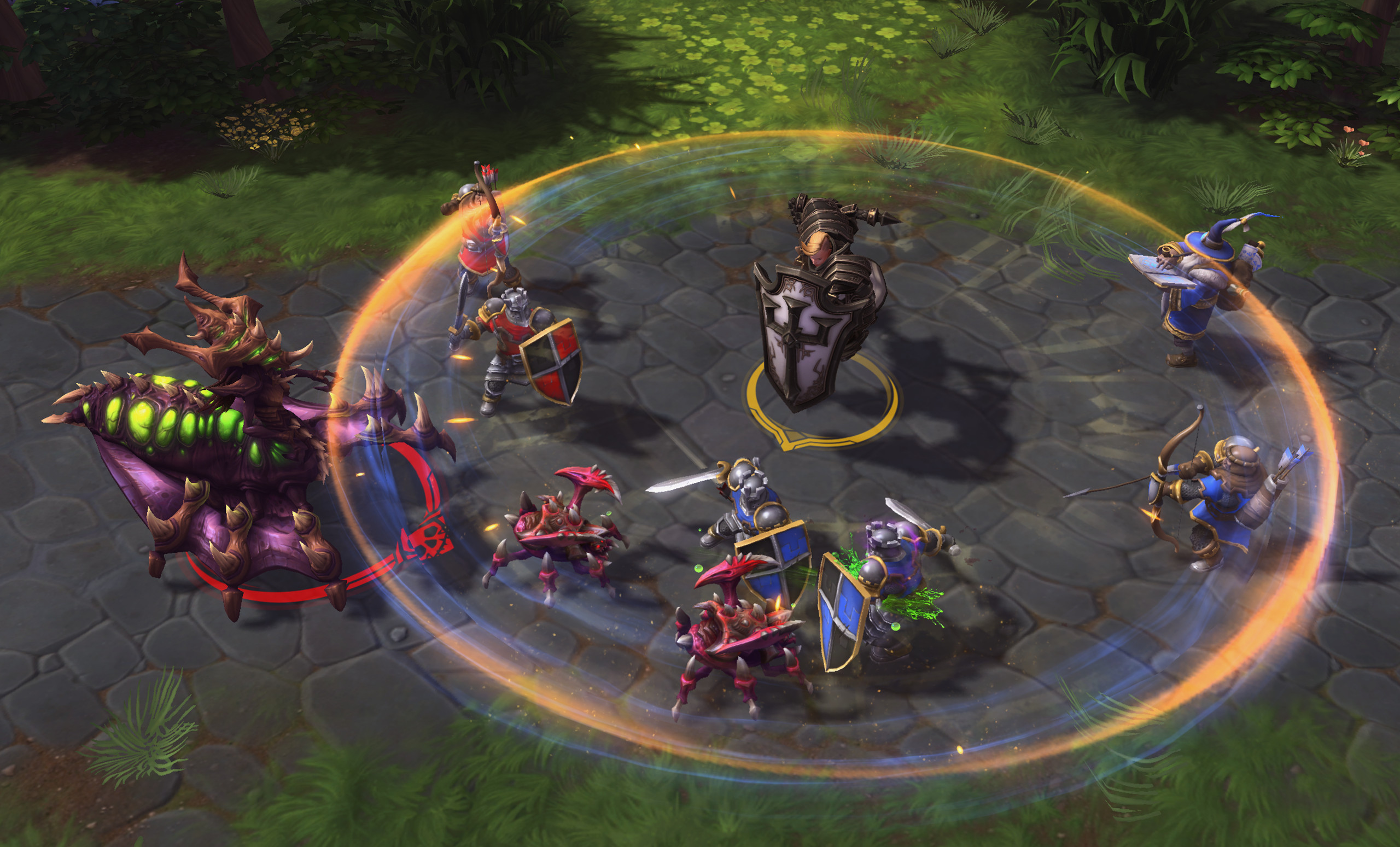
-
Heroes of the Storm Review #12
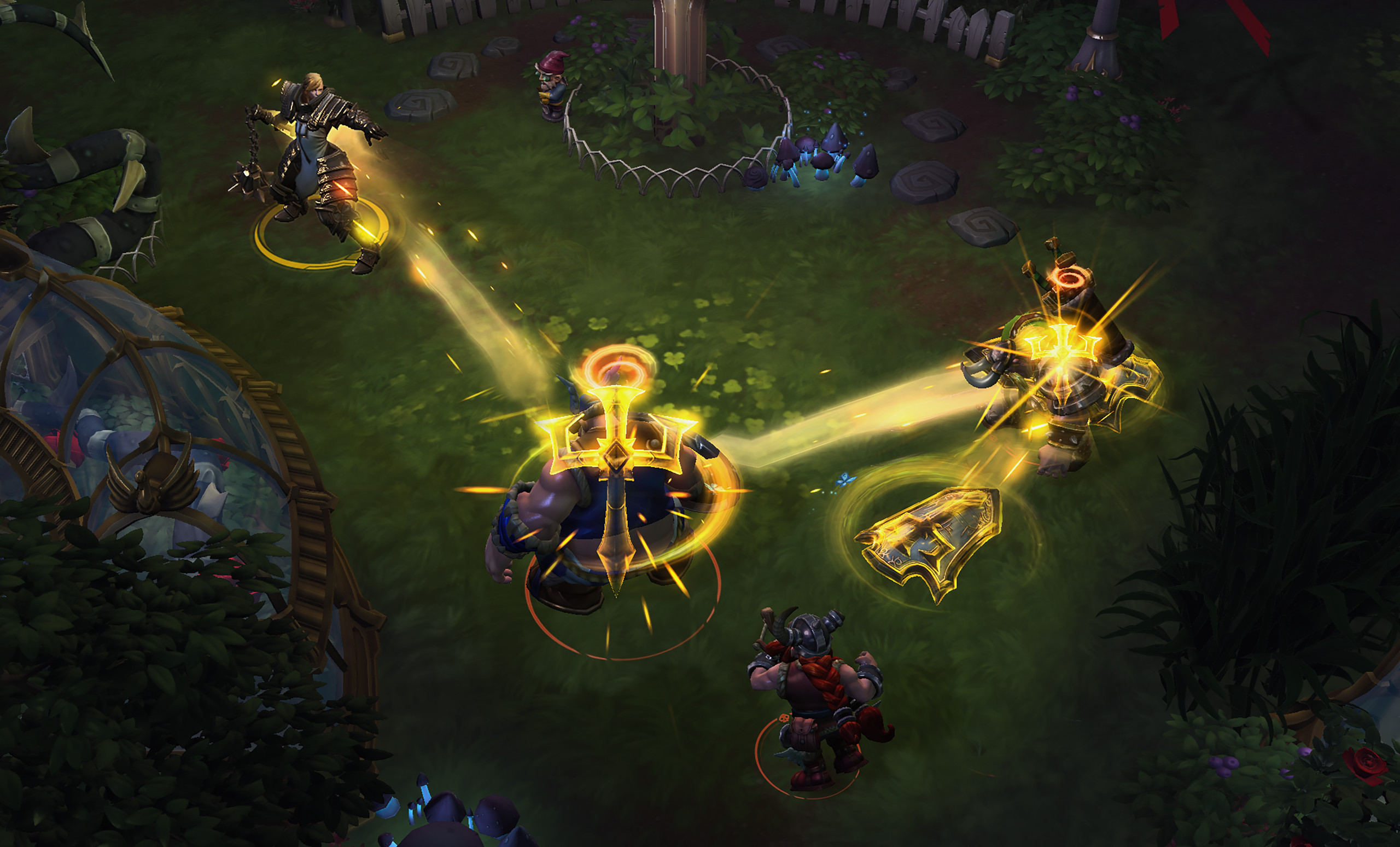
-
Heroes of the Storm Review #13
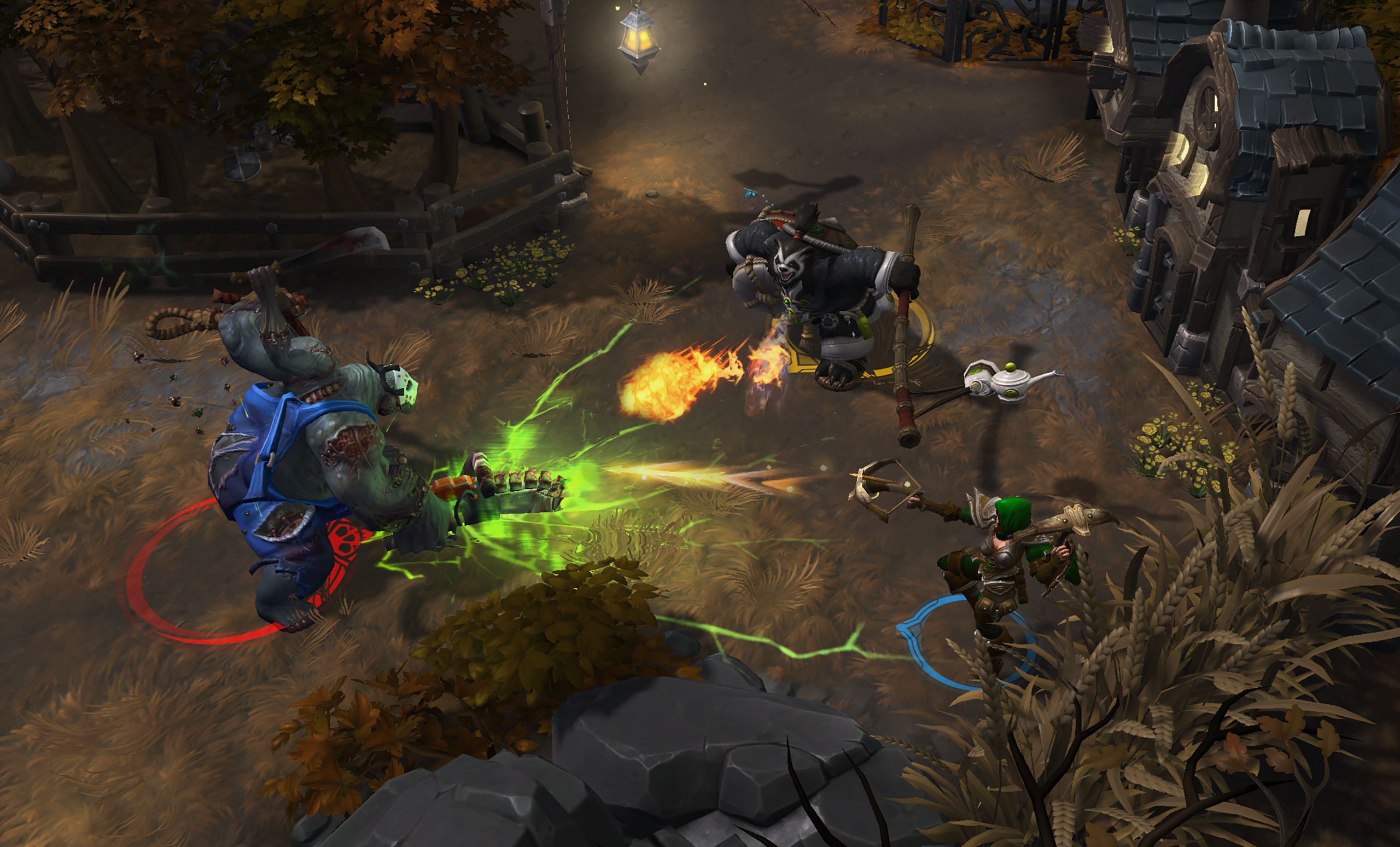
-
Heroes of the Storm Review #14
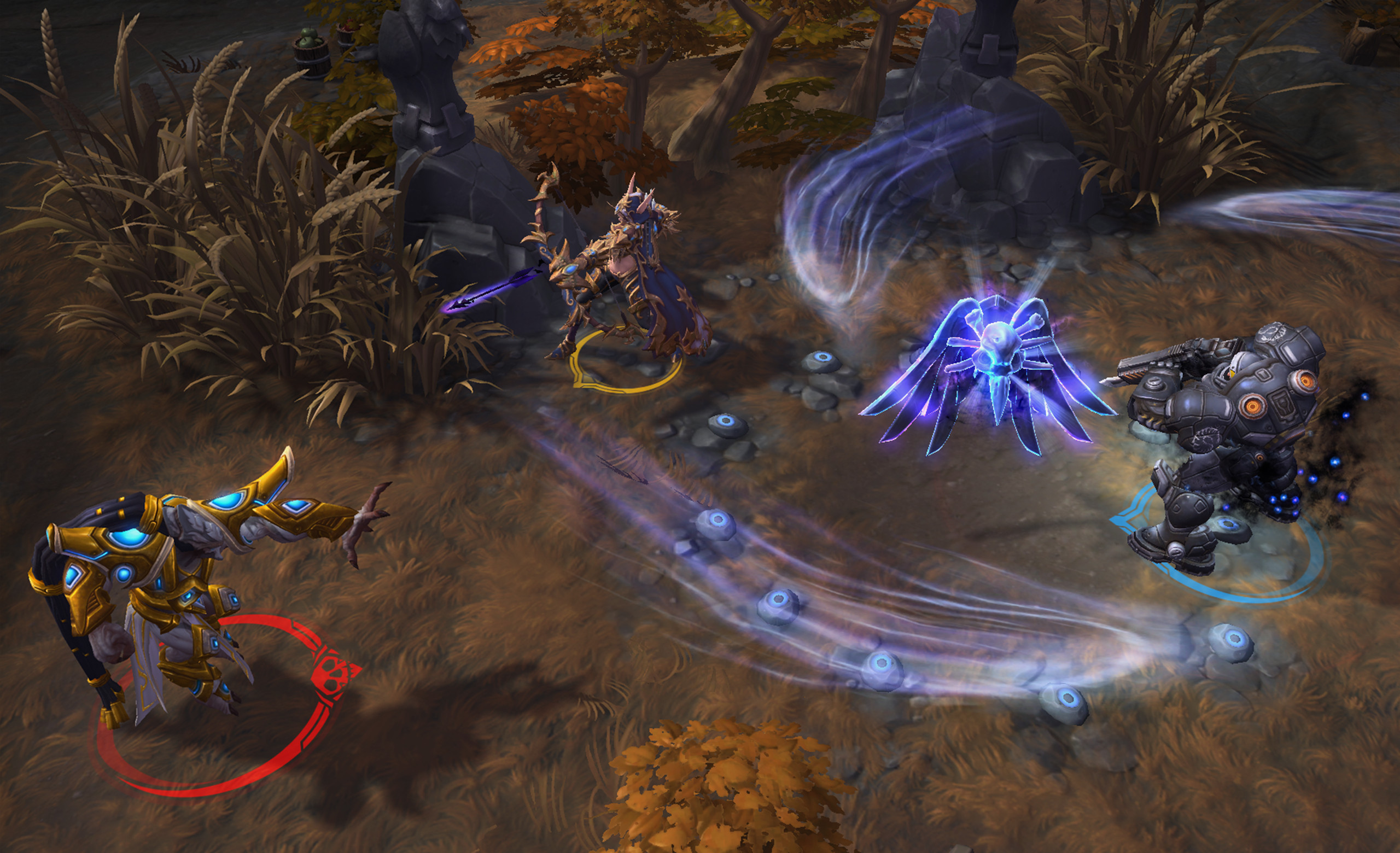
-
Heroes of the Storm Review #15
